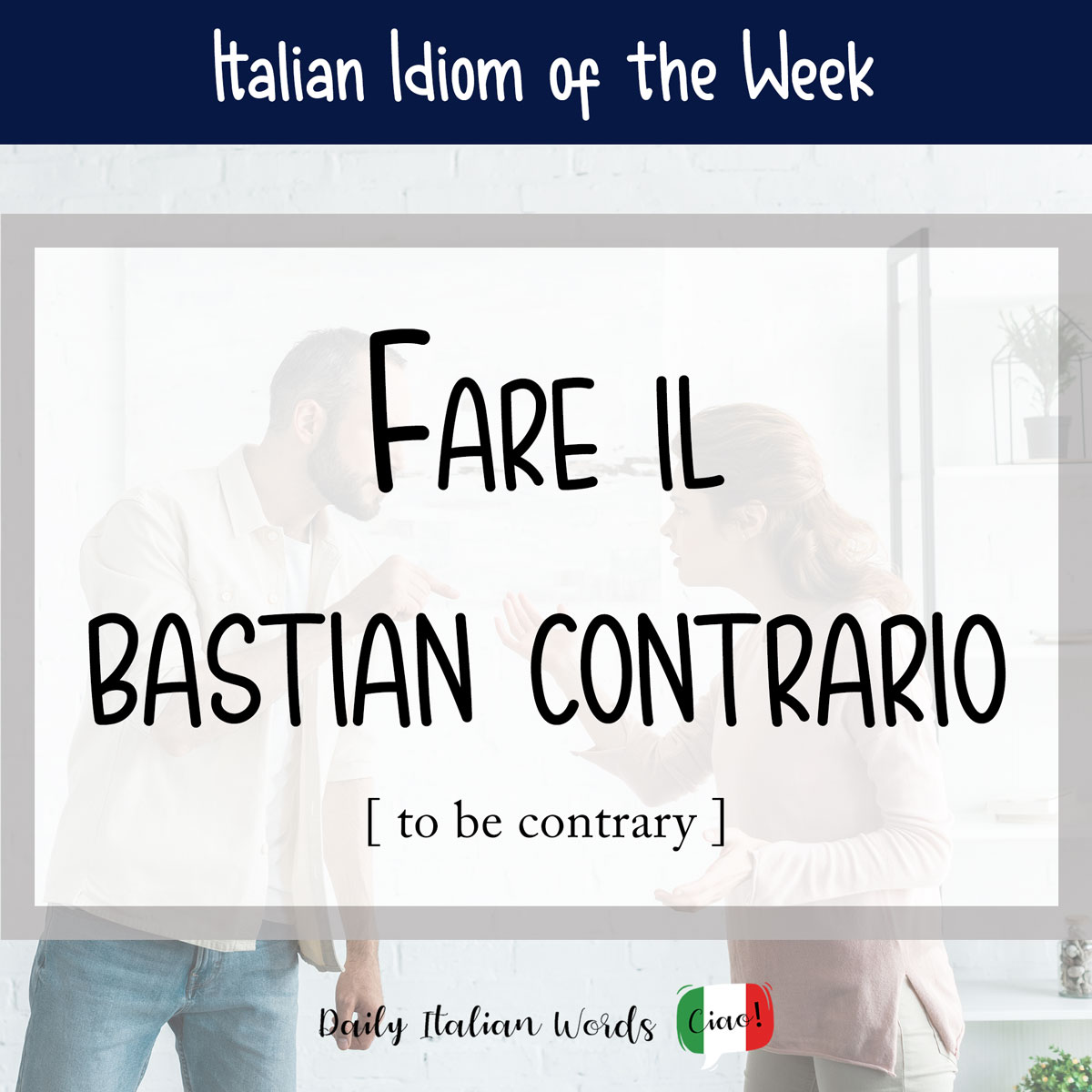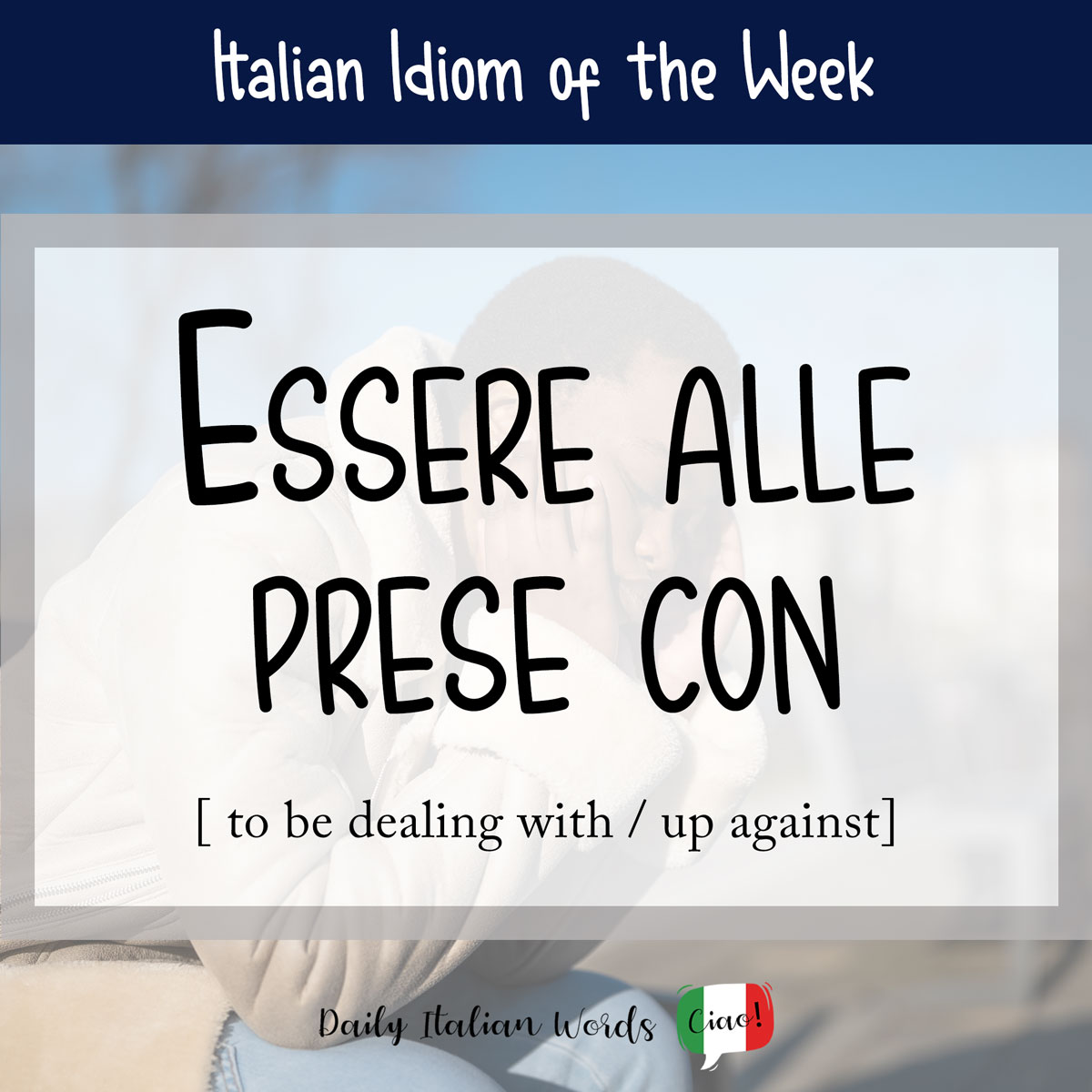Italian Idiom: Fare il bastian contrario (to be contrary)
A bastian contrario is a polemical individual who adopts opinions and attitudes that go against those held by the majority, so fare il bastian contrario can be translated as “to be contrary” or “to be a contrarian.” fare il bastian contrario to be contrary Before we take a look at the word bastian, which has …






